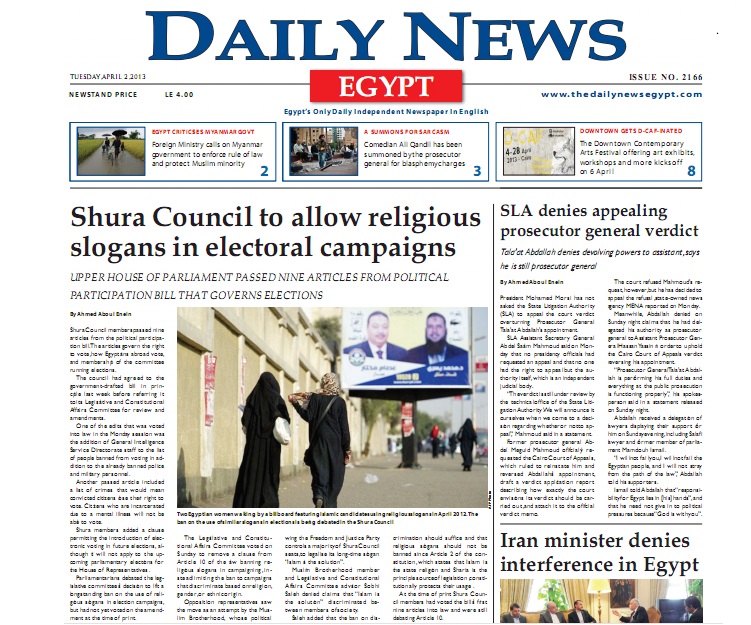CAIRO: If you’re looking for local, unique handmade crafts with a touch of history, you need look no further than the Egypt Crafts Center (ECC). Carrying everything from extra virgin olive oil cleansing bars from Al Fayoum, to cotton embroidered sheer sheaths from Siwa, ECC has something for everyone.
A nonprofit organization, the ECC store sells crafts made by local artists from struggling, poor communities throughout Egypt.
Yet ECC is more than just a shop; it’s an entire outlet created to aid and support those in dire straits to sustain their way of life by selling their wares as a trade.
“Our main goal is to preserve the cultural heritage of poverty-stricken communities throughout Egypt, but through fair trade, says Anne-Marie Iskandar, marketing coordinator. “We are able to fund community projects with the profit we make from other projects.
“There is also a feeling of pride in what these people are doing, because this is something we have touched in many ways. As tourists and Cairenes come into their communities, people start losing pride in what they have. So to us, their crafts are a way to enhance their identities in front of strangers, says Mona El Sayed, general manager.
The ECC, which will soon evolve from a company to a foundation and be known as Fair Trade Egypt, to reflect the company’s rigid fair trade conditions, began in 1998 as a result of an initiative between the Italian nonprofit and nongovernmental organization, Cooperation for the Development of Emerging Countries (COSPE), and the Egyptian private consulting firm North South Consultants Exchange (NSCE), to alleviate poverty in a number of isolated communities throughout Egypt.
“At first, we were the marketing link between COSPE and NSCE, aiding one community in need. But our dreams were too ambitious, and we went from aiding one group to 36 in eight regions of Egypt, says El Sayed. “As a company, we can pocket the profit and it’s not an issue, because we are a company. But as a foundation, we are held accountable by the Ministry of Social Affairs; any profit goes back to the beneficiaries in one way or another, so there are no personal owners.
ECC goes far beyond the simple buying-and-selling formula of its competitors. The company builds the capacity of the producers, dreams up products for communities to make, provides training and works with a multitude of NGOs.
“There is a big challenge selling crafts in Egypt, especially in exports. To be able to meet market demands, we work very hard with producers to develop their quality, standardize the measurements, and work on design and so on. We then develop a line of products, explains El Sayed.
In North Sinai, the local community used to make embroidered galabiyas.
“You cannot export a galabiya. To open up more markets we had to be able to sell more, says El Sayed.
“It’s a challenge to make them understand the value of what they have in the face of something plastic, for example, adds Iskandar.
With the help and creative minds of the ECC, they now make 100 products, from scarves and purses to satchels and computer cases.
“To be pragmatic, we do not empower an entire community. To do so, you need several arms. That is why we collaborate with fair trade organizations and NGOs that work on other levels, so that, while we can give them a source of income, these other groups we work with give them other things, such as education and health, says El Sayed
Yet, with a staff of only nine people, ECC partners with other projects to obtain financing training for communities.
El Sayed also gives the example of CARE, one of the world s largest private international relief and development organizations. CARE established a school in two communities in the very remote border of Fayoum, in Kuta and Il Karya Il Tanya. CARE was unable to get the women to take their children to school, as they felt their children did not need an education. CARE enlisted the help of ECC to think up a way to persuade the mothers to take their kids to school.
“Fayoum has a lot of extra virgin olive oil due to an abundance of oil trees. We thought; why not get the women to make olive oil soap while their kids were at school? CARE allocated one room for production; we got a doctor to create a chemical-free formula, and the women ended up taking their kids to school, where the children would study whilst the women made soap, and at the end of the day they would leave together, says El Sayed.
Simple as that.
Yet the ECC faces one rather gigantic problem: a lack of manpower.
“We need hands. We need volunteers or interns. Others can help us contact prospective exporters. Also, product development ideas. If someone has an idea that can be done, that helps. So many things can be done. Just spreading the word is a big help, says El Sayed.
ECC is located at 27 Yehia Ibrahim St., Zamalek. Tel: (02) 736-5123. Visit their Web site at: www.fairtradeegypt.org.


